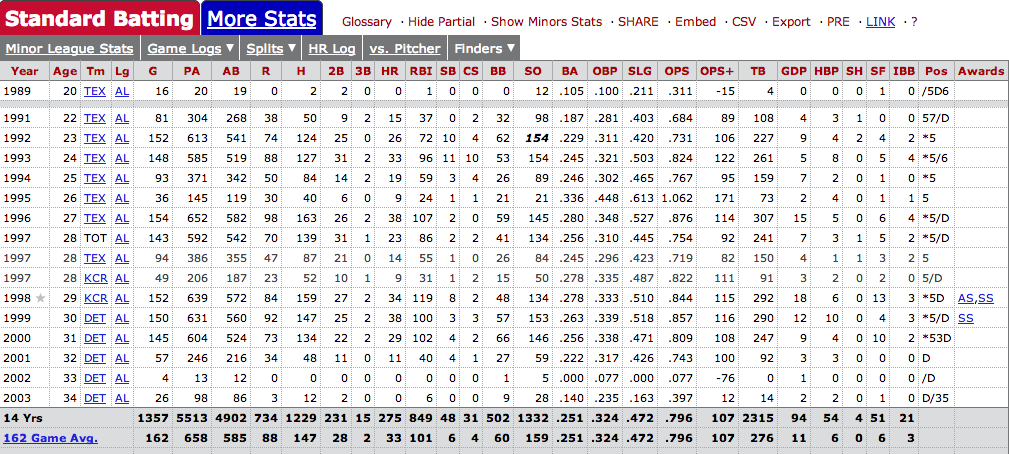There's something we need to tell you: Roger Maris was very average
This is going to anger a lot of people, so let's get this out of the way.
Roger Maris should be in the Hall of Fame. You should walk through the halls of Cooperstown and see an entire exhibit on his well-known accomplishment. He's ingrained in history, not just for belting 61 home runs to eclipse Babe Ruth's single-season home run record, but he is one of 14 players to win back-to-back MVP awards.
You simply can't explain baseball history – or home run hitting, to be exact – without him. Simply put, his cultural significance is immensely strong even decades after his final game.
For true diehards, part of baseball is holding onto the past. Fans save newspapers. They love watching YouTube clips from years past. Flipping through the channels and landing on a game from years ago is akin to finding a winning lottery ticket worth a couple hundred bucks. You get lost in the endless numbers that Baseball-Reference's pages provide and wish you witnessed Ted in the 40s, Sandy in the 50s, Mays in the 60s, Rose in the 70s and so on.
Yankees fans – or anybody else, really – can't firmly grasp what Babe Ruth's player page looks like. How did anybody ever put up such gaudy, otherworldly numbers? The same can be said when flipping to the pages for Mickey Mantle and Joe DiMaggio.
Then you click through to Roger Maris and wait to devour more greatness in his statistics.
But it's just not there.

If you take away the 1961 season during which his 61 home runs, 141 RBIs and 132 runs scored were career highs, he averaged 19 home runs, 64 RBIs and 63 runs over the remaining 11 years of his career. He hit .280 twice and finished his career as a .260 hitter
His identical twin on the scale of a 'Similarity Score', based on Baseball-Reference's in-depth mathematical equation, is Edwin Encarnacion. But this comparison is clouded because it includes the bulk of the Blue Jays slugger's career in which he hit a vanilla 117 home runs prior to the current five-year surge in which he's launched 191 of his 307 career homers. Historically, Encarnacion will far exceed Maris' total output when his playing days are over.
The best mathematical comparison is Dean Palmer, a veteran third baseman who spent time with the Rangers, Royals and Tigers in the 1990s and early 2000s. Palmer, a one-time All-Star, averaged 19 home runs, 60 RBI and hit .251 over his 14-year career.

Here's another player whose statistical output was nearly identical to that of Maris: Jesse Barfield, another one-time All-Star who was well known for his cannon of an arm and solid productivity at the plate. Over 12 years, he averaged 20 homers, 60 RBI and 60 runs scored.

While Maris, Palmer and Barfield will never be labeled as below-average players and should be looked upon in positive light, they significantly trailed the following names from a statistical standpoint, according to Baseball-Reference: Jason Bay, Geoff Jenkins, Justin Upton, Carl Everett, Jayson Werth, Bobby Higginson, Kevin Millar, Hunter Pence, Rondell White, Andre Ethier and many others of that ilk.
So was Roger Maris just not that good? We wouldn't go that far. It's just interesting to look at the mathematical facts and feel underwhelmed about his overall place in history.
Casual sports fans will often mention his name when discussing power and home runs and all the exciting things about baseball's past. And now you have an impressive way of flipping the conversation on its head.

